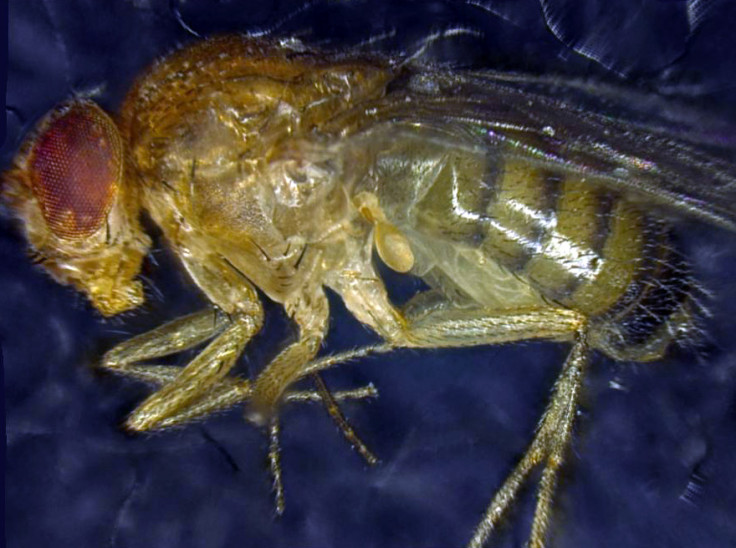Lifespan of flies increased by 60% by activating gene also found in humans

Researchers at the University of Bern have significantly prolonged the lifespan of flies by activating a gene which destroys unhealthy cells.
As the gene is conserved in humans, the work opens up the possibility that selecting the healthier or fitter cells in human organs could be used as an anti-ageing mechanism.
The team at the University's Institute of Cell Biology led by Eduardo Moreno extended the lifespan of flies by 50 to 60% by activating the gene ahuizotl (azot) which selectively targets less healthy or less fit cells to keep organs healthy.
"Our bodies are composed of several trillion cells," explains Moreno, "and during ageing those cells accumulate random errors due to stress or external insults, like UV-light from the sun. But those errors do not affect all cells at the same time and with the same intensity."
By selecting the less affected cells and eliminating the damaged ones, the team could maintain tissue health and therefore delay ageing and prolong lifespan.
The researchers inserted a third copy of the gene into cells which normally contain two copies of this gene. This helped them select better cells more efficiently. The improved cell quality control mechanism in turn led to the longer lifespans in the flies.
The researchers used Drosophila melanogaster flies. Their work has appeared in the journal Cell.
Scientists at UCLA had recently shown similar results in flies by activating a gene involved in cellular energy process.
Encouraging cellular division in later stages of life, and controlling free radicals using artificial enzymes have been other ways used to reverse ageing process.
© Copyright IBTimes 2025. All rights reserved.





















